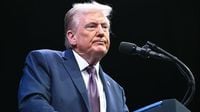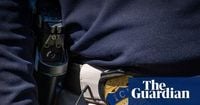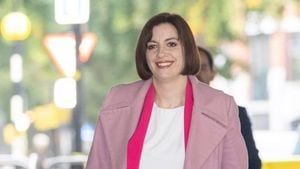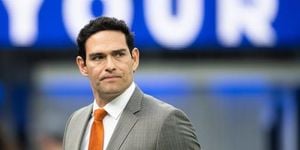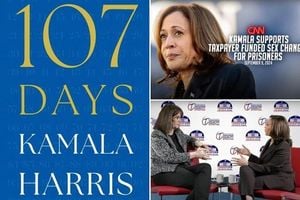Chicago has once again found itself at the heart of a national controversy, as the Trump Administration intensifies its immigration crackdown with the launch of "Operation Midway Blitz." Over the past week, federal authorities have ramped up enforcement efforts in the city, targeting undocumented immigrants with criminal records. The move has triggered a wave of resistance from local leaders, faith communities, and state officials, all while sparking intense debate over the legal and moral boundaries of federal intervention in urban affairs.
On Tuesday, September 9, 2025, a diverse coalition of Chicago’s faith leaders—spanning Christian, Jewish, and Muslim communities—gathered on the city’s West Side to voice their opposition to what they view as an impending federal takeover. Organized by the Leaders’ Network, the group declared the day “Resistance Tuesday,” urging the city to reject both the Trump Administration’s immigration policies and its threats to deploy the National Guard. “It’s so important that this is an interfaith gathering that Christians, Jews and Muslims are coming together to say that we’re going to fight for Chicago,” said David Cherry, president of the Leaders’ Network, according to ABC7 Chicago.
The Department of Homeland Security has confirmed that its current focus is on apprehending undocumented immigrants with criminal pasts, particularly in sanctuary cities like Chicago. Immigration and Customs Enforcement (ICE) agents have been present in the city for weeks, rounding up individuals accused of residing in the country illegally. The administration has branded the enforcement drive as "Operation Midway Blitz," a moniker reminiscent of previous efforts such as "Cornhusker Clink" and "Alligator Alcatraz," which referred to new migrant detention facilities in Nebraska and Florida, respectively, as reported by The Hill.
While the Trump Administration frames these actions as crucial to restoring law and order, critics argue that the measures are an overreach, stoking fear and division in communities already under strain. “So while he is championing that there’s a need for the military to solve this problem, we believe in resources—why troops?” asked Pastor Cy Fields of New Landmark Baptist Church, as quoted by ABC7 Chicago. Many faith leaders have accused the administration of using crime in predominantly Black and brown neighborhoods as a pretext for increased federal presence. “We resist what he is doing,” stated Dr. Walter McCray, pastor of Greater Union Baptist Church. “We stand flat footed, morally and spiritually and resist what he is doing. We are not afraid. We can control our community if we have the resources—the resources to hire folk.”
President Trump, for his part, has made no secret of his intentions. “We’d love to go into Chicago and straighten it out,” he declared during a Washington event on September 8, 2025, adding, “We’re waiting for a call from Chicago.” Despite these comments, National Guard troops have not yet been deployed to the city, and there are significant legal questions about whether the president could federalize law enforcement in Illinois without state approval. Governor J.B. Pritzker, a Democrat and potential 2028 presidential contender, has been vocal in his opposition, promising to fight any federal escalation in court. “We are ready to fight Trump in court if federal operations move beyond law enforcement personnel to include troops,” Pritzker said, according to The Hill.
Military experts have weighed in, noting that if the National Guard were deployed, their primary role would likely be to guard federal buildings, not to police city streets or respond to emergency calls. The troops are trained for military combat, not for the nuanced demands of urban law enforcement. This distinction has fueled concerns among local leaders that such a deployment could further inflame tensions rather than provide meaningful solutions to the city’s challenges.
The Trump Administration has pointed to its recent successes in other cities as justification for its actions in Chicago. Officials claim that crime rates in Washington D.C. dropped after the National Guard was called in to help secure the city. Similarly, National Guard members and Marines were sent to Los Angeles in June 2025 to support immigration enforcement, and the administration is now escalating efforts in Boston with "Operation Patriot 2.0." The Supreme Court further bolstered the administration’s authority on September 8, 2025, when it issued an emergency order blocking a federal judge’s ruling that would have limited immigration stops in Los Angeles. The decision, supported by the court’s conservative majority, has given the administration wider latitude to conduct immigration raids targeting what it calls “criminal illegal aliens.”
The federal crackdown in Chicago has also been framed as a response to a tragic incident: the death of Katie Abraham, a 20-year-old Illinois resident who was killed when her vehicle was allegedly struck by a car driven by Julio Cucul-Bol, a migrant without legal status. The administration has cited this case as emblematic of the dangers posed by sanctuary city policies, arguing that more aggressive enforcement is necessary to protect public safety. Yet, critics counter that such tragic events are being exploited to justify sweeping and punitive measures that affect entire communities.
Political leaders across the spectrum have reacted with varying degrees of urgency and caution. While Republicans in Congress have remained largely silent on Trump’s Chicago offensive, Democratic leaders have issued sharp rebukes. Illinois Governor Pritzker has described the president as a “wannabe dictator,” while Chicago Mayor Brandon Johnson penned an opinion piece in The New York Times arguing, “The National Guard isn’t what we need.” At the same time, Chicago has launched a new tourism and marketing campaign, “All for the Love of Chicago,” aiming to encourage residents to reclaim the city’s story and counter negative national narratives.
Protests are expected to continue throughout the week, as community members and activists take to the streets in defense of Chicago’s autonomy and its immigrant population. “It’s looking for an excuse to have further crackdowns on valid protests and to provoke attack and that’s my deepest concern—that these troops are coming here to provoke not to protect,” warned Rabbi Max Weiss of Oak Park Temple, as reported by ABC7 Chicago.
The Supreme Court’s recent emergency order has only heightened the stakes, granting the Trump Administration unprecedented leeway to pursue its immigration agenda. Justice Sonia Sotomayor, writing in dissent, lamented, “We should not have to live in a country where the Government can seize anyone who looks Latino, speaks Spanish, and appears to work a low wage job.” Her words reflect the deep anxieties felt by many in Chicago and beyond, as the boundaries between federal authority and local governance are tested in real time.
As the city braces for further developments, one thing is clear: Chicago’s struggle over immigration enforcement is far from over. With legal battles looming, faith leaders rallying, and communities mobilizing, the outcome of "Operation Midway Blitz" will reverberate far beyond the city’s borders, shaping the national debate on immigration, policing, and the limits of presidential power for months—if not years—to come.
